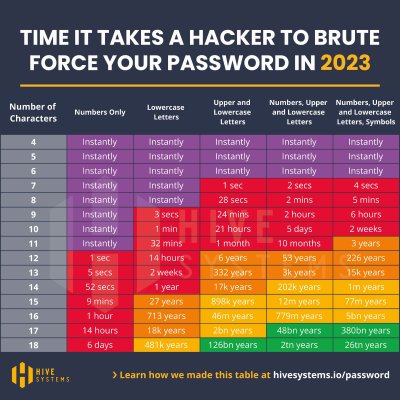I wrote down the websites & passwords in my phone contacts.
If I lose my phone, they will have access to all my financial accounts with passwords written & other websites.
How do I go about correcting these, I know I have my work cut out,
Google email says -
Passwords checked for 214 sites and apps
60 compromised passwords
Change these passwords now
228 reused passwords
Create unique passwords
55 accounts using a weak password
Create strong passwords
If I lose my phone, they will have access to all my financial accounts with passwords written & other websites.
How do I go about correcting these, I know I have my work cut out,
Google email says -
Passwords checked for 214 sites and apps
60 compromised passwords
Change these passwords now
228 reused passwords
Create unique passwords
55 accounts using a weak password
Create strong passwords

